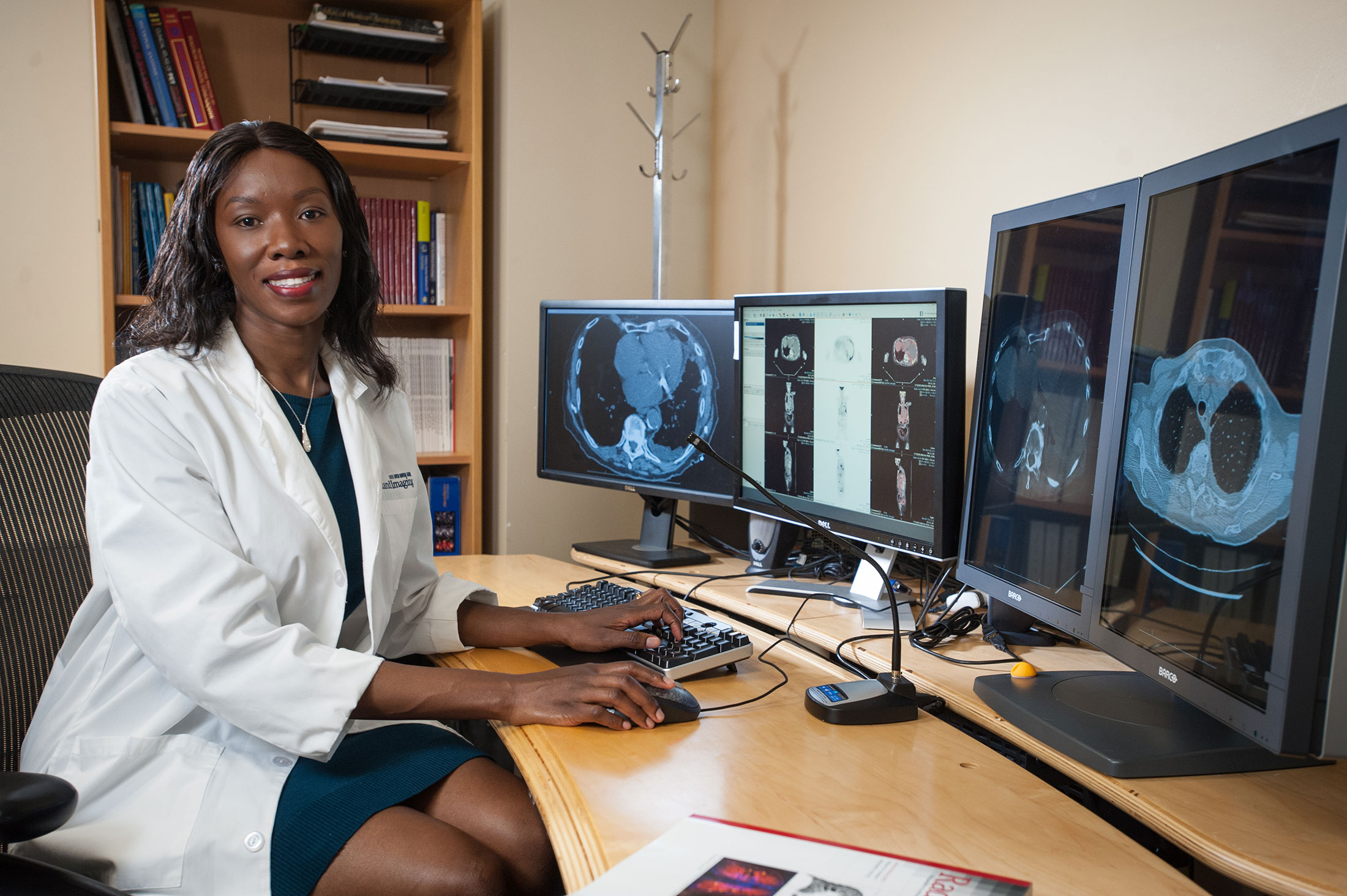NUCLEAR MEDICINE OVERVIEW
Nuclear medicine is a subspecialty of medical imaging that uses radioactive materials and special imaging techniques to study both the structure and function of organs and other tissues inside the body. It allows your physician to obtain the information they need before needing to resort to a more costly or invasive procedure. The versatility of this specialty makes it valuable in the detection, diagnosis and treatment of: cancer, heart disease, neurological disorders and a variety of other medical conditions.
For a typical Nuclear Medicine exam, you are given a small amount of radioactive material as an injection into a vein or swallow it in the form of a pill. This material collects in the area of concern, where it releases energy in the form of gamma radiation. A gamma camera then detects that energy and uses it to create the images and information your physician will need to determine if the organ or structure being examined is working as it should.

